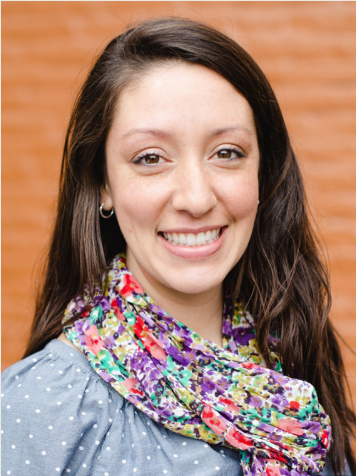By Lydia Wolfe || Staff Writer

Stephanie Gromek, Community Resource Coordinator of Church World Service (CWS) in Lancaster, Pennsylvania, gave a talk, entitled, “From Global to Local: Understanding the Greatest Refugee Crisis of Our Time,” at Common Hour this week. She detailed the world’s current refugee crisis, focusing on refugees in Lancaster and the aid that Church World Service provides. Gromek holds a Master of Science in Community Health from Hofstra University. Her experience in working with refugees ranges from HIV/AIDS research in Nairobi, Kenya to resettlement work in Pennsylvania. She began working with CWS in 2011 and is currently the Community Resource Coordinator in the Lancaster office. This event was proposed by Professor Sofia Ruiz-Alfaro, Associate Professor of Spanish, and is sponsored by the International Studies Program, Office of the Chaplain, and the Public Affairs Lecture Fund.
Gromek began her talk by stating the mission of CWS, which is to “eradicate hunger and poverty and promote peace and justice.” CWS is a national organization, founded in 1946, that has major programs that provide food, water, and assistance for refugees. It is one of nine national refugee resettlement agencies.
Gromek explained the difference between refugees and migrants. Since 1951 refugees have been defined as people who flee their country because of a well-founded fear of persecution based on race, religion, political opinion, or membership in a particular social group, such as women or LGBTQ people. They are also unable or unwilling to return home, and are “legitimately fearing for their lives.” Migrants are defined as people who make a conscious choice to leave their country to seek a better life elsewhere. As Gromek explained, these terms were forced to be defined because of the current political climate. She asked the audience to consider the question of, “what exactly is this distinction?” Migrants do not qualify for the same protections even though migrants and refugees are often the same people.
The current refugee crisis involves 15 major conflicts around the world that have “erupted or reignited in the past five years, displacing tens of millions of people.” There are currently more than 65.3 million refugees and people in refugee-like situations, according to the United Nations High Commissioner for Refugees. 51% of these people are under the age of 18. Resettlement to a third country is an option for less than 1% of the refugees.
The vetting process for these individuals is a thirteen-step procedure involving organizations such as the Department of Homeland Security and the FBI performing checks in the United States and in the refugee’s home country. For Syrian refugees, this lengthy process has an additional four steps. Gromek explained that the process can take an average of 1,000 days, “if everything aligns perfectly.”
In 2016, CWS resettled more than 850,000 people. In Lancaster, 407 refugees were resettled as well as 328 Cubans and Haitians. Gromek explained the three programs that CWS offers to these resettled refugees. Firstly, the refugees enter a resettlement program that offers health services. They then transition to an employment program in which they receive help in building resumes and finding jobs in the Lancaster area. The placement rate for this program is 91% within three months of arrival. Lastly, CWS has an immigration and legal services program that helps the refugees, who are legal permanent residents, apply for green cards and eventually, citizenship. CWS is a public-private partnership. The public portion of this includes food stamps, medical assistance, and a one time resettlement grant of $925, “the only thing they’re actually given.” The private portion of the organization includes community involvement. “Every community has to show that they are welcoming of refugees” in order for refugees to continue to be accepted. Community involvement comes in the forms of volunteers, student interns, including some from F&M, and donations. Former members of the program also return to act as interpreters, drivers, and friends to the newer arrivals. As Gromek says, “these refugees have been through a lot. The war and the conflicts are not like any other,” and the community support helps makes a difference in their lives, providing them with safety and empowerment.
Gromek finished her talk by addressing President Donald Trump’s recent executive order and the effect it is had on refugees. Trump placed a complete halt on all refugee resettlement for 120 days, as well as reducing this year’s national capacity for refugees from 110,000 to 50,000. Locally, Gromek says that the Lancaster office has so far only received six cases this year, a “number [that is] very low, let’s just say that.” CWS is currently only continuing to process cases until March 7 because they are unsure of what the next governmental action will be. They are currently working on a family reunification case in which two young girls were separated from their mother for seven years. The mother, who was resettled, was eventually able to reconnect with her daughters, and the girls were set to arrive in Lancaster on March 7. Because of the executive order, “they will be halted and stopped. This is who is affected by this executive order.” Gromek urged anyone who feels that this executive order does not represent who the people of Lancaster, and of the United States, are, to call the White House and Congress, saying, “we need your voice.”
First-year Lydia Wolfe is a staff writer. Her email is lwolfe1@fandm.edu.